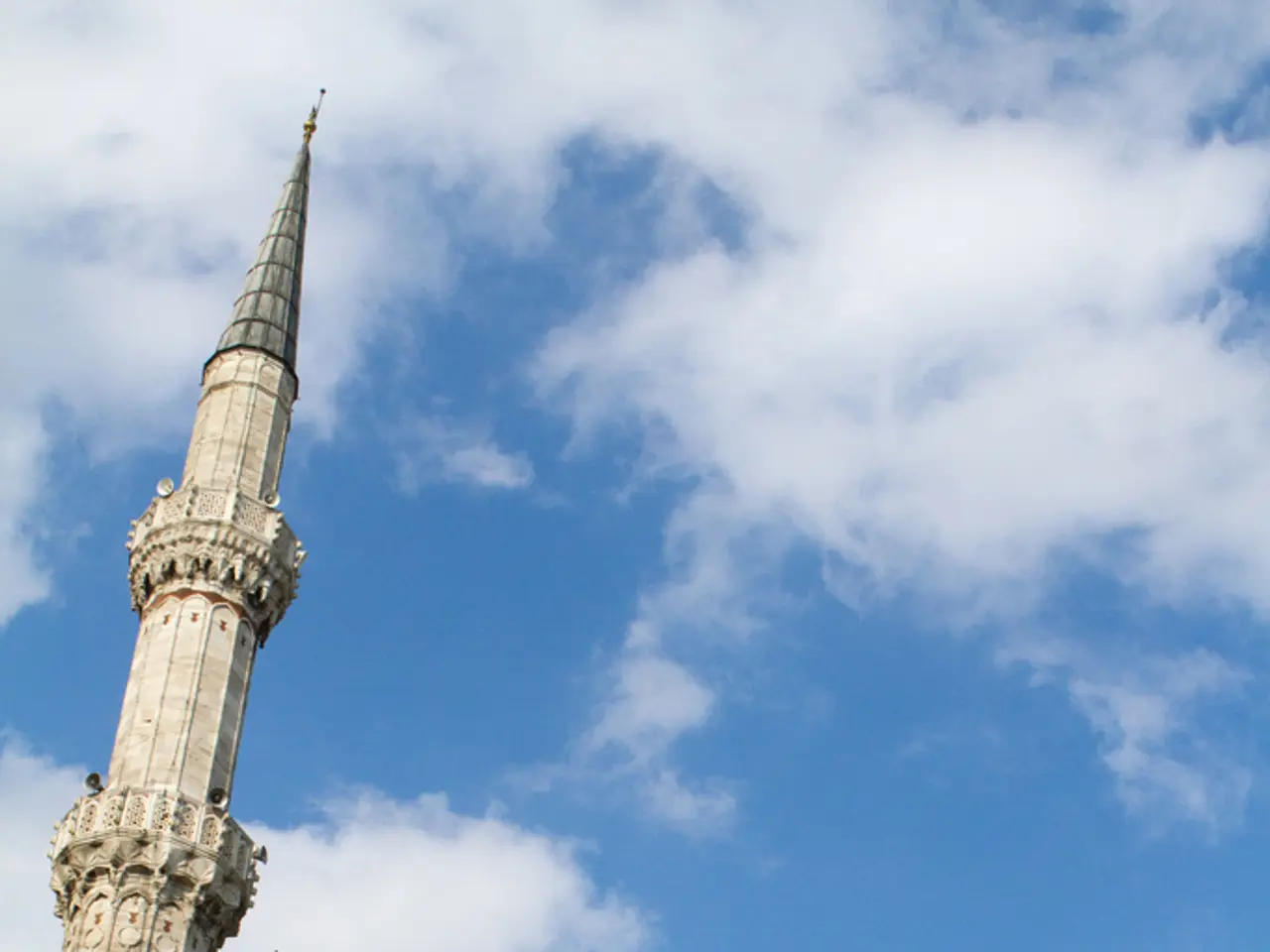Families of Alawite faith leave Damascus suburb due to violence and expulsion warnings
In the heart of Syria, a small neighborhood named Sumariya is experiencing a tense situation. The area, once housing military personnel, has become a contested ground for its residents, many of whom are civilians living in small, shoddily constructed homes.
Mohammad Ibrahim, a retired government worker, is one such resident. He bought a house in Sumariya back in 2010 and later received a court decision making the ownership official. However, nearly nine months after the ousting of President Assad in a rebel offensive, ending 50 years of his family's rule, Ibrahim and other residents are facing threats of eviction.
The Alawite Assad family was previously seen as privileged in Syria, but since Bashar Assad's government fell, Alawite minorities have feared revenge from the Sunni majority. This fear seems to be materialising in Sumariya, where a local armed faction, led by Abu Huzaifa, is threatening residents despite government officials stating no official eviction orders have been issued.
Karam Khuzam, head of the neighborhood committee, reported instances of beating and random arrests during the raid on Sumariya. He also stated that instead of a legal process to determine ownership, armed men descended on the neighborhood and ordered residents to get out immediately. Even those with documentation in Sumariya have been threatened and ordered to evacuate.
Ragda Jerawa, a mother of two and government employee living in Sumariya, was told that an inspection committee would come to check ownership papers, but her home was raided the next day, resulting in beatings and no request for papers. Jerawa and her family are now preparing to leave Damascus for the coastal area of Latakia, fearing the potential loss of her job.
The Syria Report, a publication tracking the country's economy, noted that Sumariya emerged on land expropriated from the town of Moadamiyat al-Sham. Many current occupants lack official documents proving their ownership or rental agreements, making them vulnerable to sudden eviction.
The situation in Sumariya has raised concerns among United Nations officials, including reports of threats of evictions and abuses against innocent civilians. The Organization for the Prohibition of Chemical Weapons (OPCW) observed the evacuation measure in Sumariya and possibly documented irregularities.
Jerawa expressed her frustration, stating "To whom do we complain? Where is the state?" As numerous families in Sumariya are too frightened to stay and risk eviction, they are choosing to leave instead. The future of Sumariya's residents remains uncertain, as the 2004 court order legalizing the ownership of land in Sumariya is being disputed by some of the original land owners in Moadamiyat al-Sham.
Reporting by Sewell from Beirut, with Associated Press journalist Omar Sanadiki contributing from Damascus.
Read also:
- Lu Shiow-yen's Challenging Position as Chair of the Chinese Nationalist Party (KMT) Under Scrutiny in Donovan's Analysis
- House Representation Originally Meant to Be Close to the People; Redistricting Risks Undermining This Connection
- Thai electorate supports business magnate from Generation X as prospective Prime Minister
- Fixing a crucial aspect in Apple's Studio Display stands to improve the experience for both gamers and creative professionals alike.








